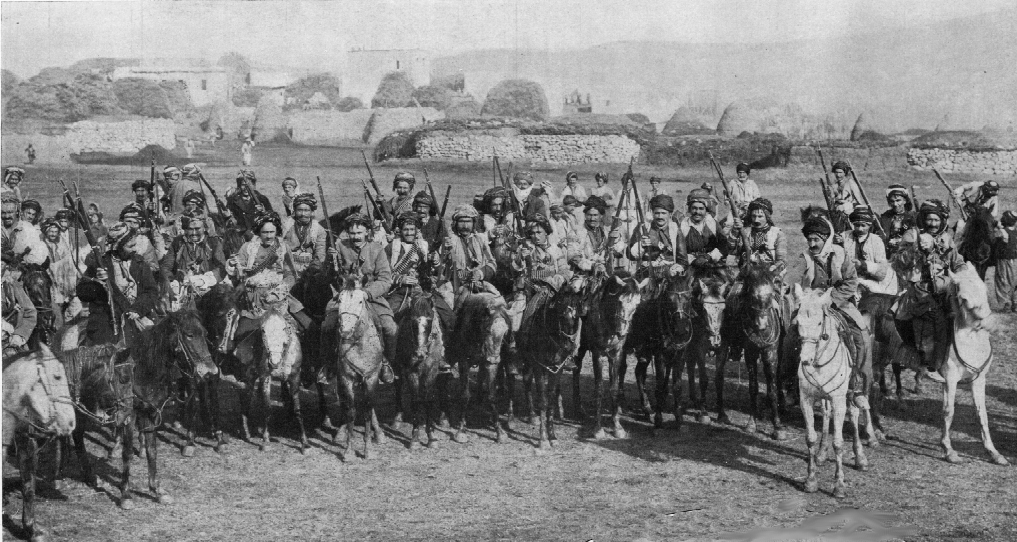
Caption: Kurdish Cavalry, 1915
The real problem the Russian economy is suffering from is that oil has dropped from $100 a barrel to $30 a barrel. The Russian government budget was once based upon oil remaining at least $80 a barrel. The current Russian government budget is based upon oil remaining at least $50 a barrel. This is not happening. The end result has been two successive years of 10% budget cuts.
Right now the Russian ruble is moving back up into the range of 60 rubles for a dollar. It was in the 70s, it used to be in the 30s. This recent rise is mostly caused by an increase in the price of oil. Russia and Saudi Arabia have agreed to hold production stable, which is having some impact on the prices. But, this is still not recovery. The Russian economy is going to be declining or stagnant for the foreseeable future (for at least the next two years…which gets us close to their March 2018 presidential election).
So, the question is, what can Russia do to bring the price of oil back up? Obviously, reduce supply or increase demand. In fact, demand seems to be decreasing as the Chinese and some other economies slow. This is probably not something they can control. They could reduce their own supply, which would cause the price to go up. But, this does not solve Russia’s problem as it would be at the expense of less barrels sold, and oil is a major part of their economy and the government budget.
Therefore, their only real option is to reduce supply world-wide. This is really only possible if Saudi Arabia and OPEC decide to. But they have a problem in that Iran, which is also supporting Assad and is an OPEC member, is putting oil back into the marketplace. Iran is now joining the world order and able to sell oil. This was one of by-products of the agreement on nuclear development limitations. Whether or not you agree with the Iran nuclear deal, it is helping us at the gas pump. It is also probably making it impossible for Saudi Arabia to really significantly boost the price of oil.
Of course, they may not want to. Saudi Arabia and Russia are on different sides of the war in Syria. A Russia directly involved in a war in the Middle East is kind of a unique event. They have had multiple wars with Turkey, but their last war ended with World War I (1918). They did occupy the northern half of Iran during World War II, but withdrew after the end of the war. They provided considerable support to the Egyptians and Syrians during the 1973 Arab-Israeli Wars, but stay away from active intervention. But this Russian intervention in Syria provides an additional incentive for Saudi Arabia not to let oil prices rise much, as this only feeds the Russian military. We have seen Russian recently limit and curtail their invention in Syria.
I have known a lot of Russians. Not one has ever told me in private conversation how much they love Bashar Assad and how much Syria contributes to Russia’s economy and defense. In fact, from an economic and military point of view, Russia’s defense of the Assad regime makes little sense. If he was gone from power tomorrow, not sure many in Russia would miss him.
So, what does Russia gain from supporting Assad?

Russia only left Iran after WW2 because the UK threatened them with Nuclear Weapons.
Furthermore, Putin is afraid of a “domino effect”, one dictatorship falling after another (democratization).
With bases in Latakia, Tartus and Assad (who is actually not important, they may as well replace him with another puppet leader) as an ally, he can increase his sphere of influence and put pressure on Iraq and Saudi Arabia (his goal is to have a larger lever and impact on the Oil price).